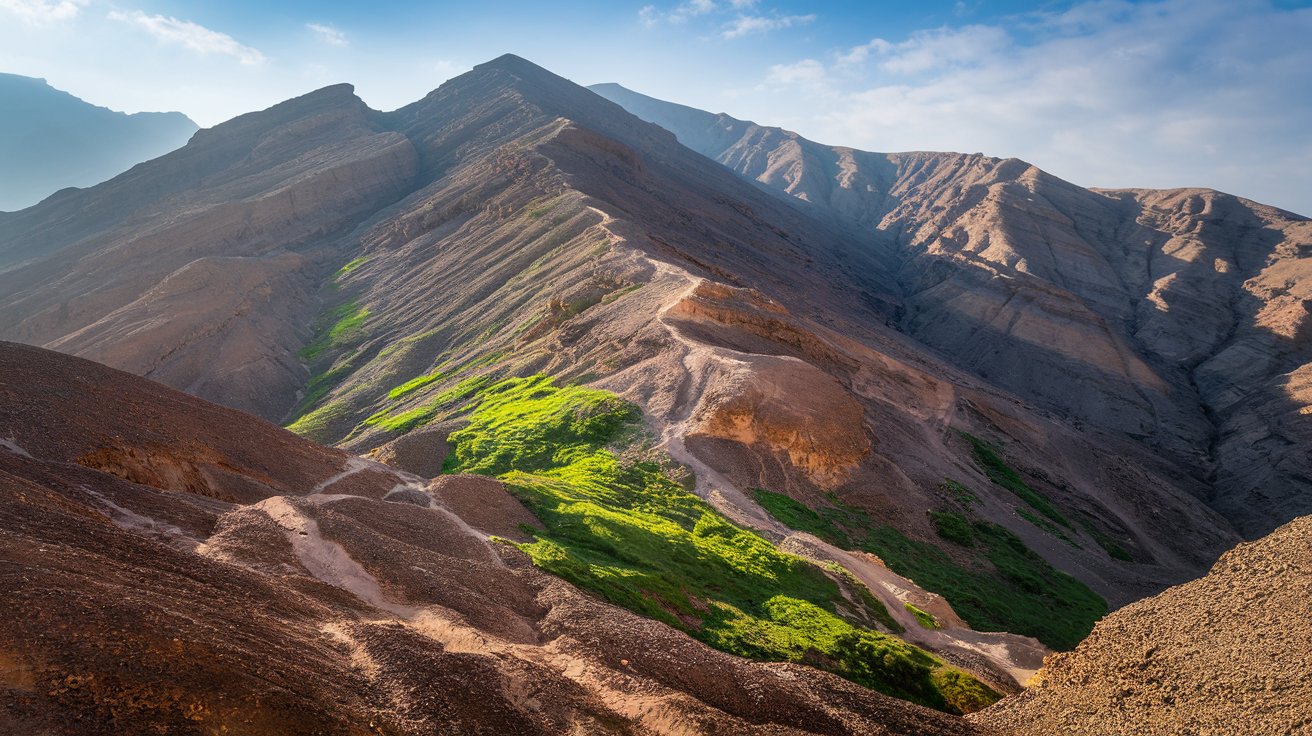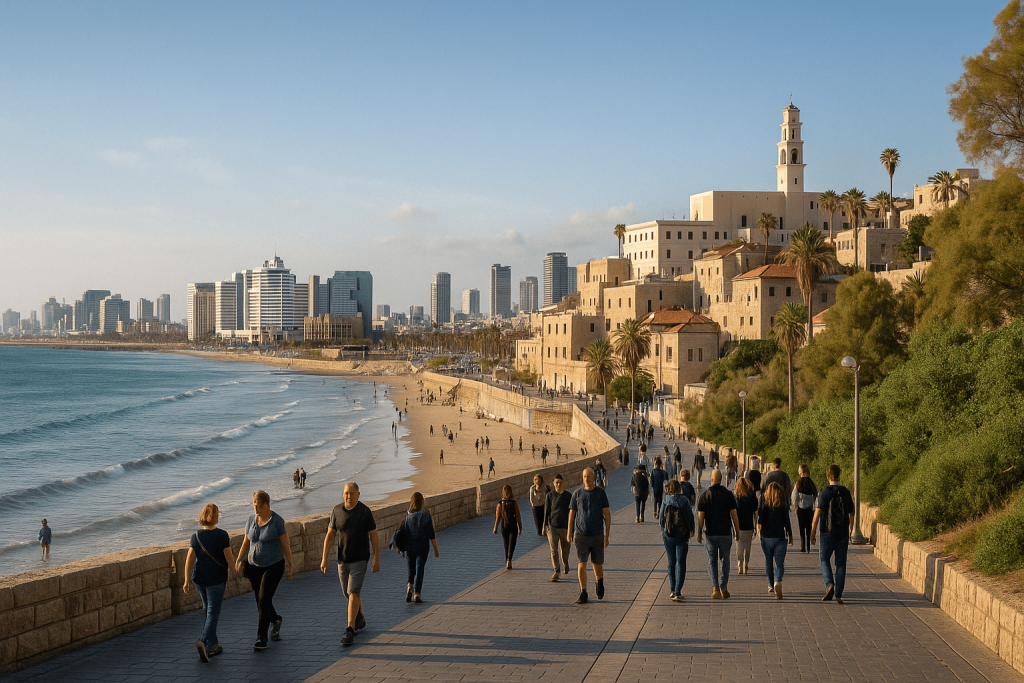
Oman’s Al Hajar Mountains aren’t typically the first spot travelers think about. But they should be — especially if you’re a fan of sustainability and adventure. Nestled between rocky cliffs and sprawling date palm oases, this majestic mountain range hides incredible eco-friendly experiences worth discovering. From secret trails to heritage-rich villages practicing ancient crafts, Al Hajar offers surprising excitement wrapped in sustainability. If you dream of exploring nature without leaving heavy footprints behind, you’ll find the mountains a perfect spot. Grab your gear, fill your water bottle, and dive into nine remarkable sustainable adventures hidden in this under-explored Omani gem.
1 Soar Higher: Paragliding Above Zighy Bay
Ever imagined gliding quietly over turquoise waters and gold-flecked sands while harnessing only wind and gravity? Welcome to Zighy Bay, where sustainable adventurers jumpstart their Al Hajar experience. Local operators here prioritize eco-friendly gear and practices, ensuring minimal ecological impact as you ascend above the rugged cliffs. Tandem flights mean beginners are welcome, letting you relish the view while your pilot does the hard work.
Tip: Mornings are the ideal time for flights; winds are stable, temperatures comfortable, and you’ll capture fantastic photos without harsh sunlight.
2 Old World Charm: Hiking Through Misfat Al Abriyeen
The moment you step into Misfat Al Abriyeen, a centuries-old mountain village near Al Hamra, time slows down — and sustainability steps up. Cars can’t access the narrow streets, which ensures quiet, peaceful trails perfect for hiking. Follow paths shaded by date palms and watch villagers use traditional aflaj irrigation systems to sustainably nourish their gardens.
Insider tip: Don’t rush your hike; stop at local cafes to enjoy freshly brewed Omani coffee, helping directly support local families and traditions.
3 Eco-Friendly Escapade: Wild Camping Beneath Jebel Shams
Jebel Shams, “Mountain of the Sun,” is the highest peak in Oman, and there’s no better sustainable accommodation choice than wild camping under star-filled skies. Set up your campsite using responsible outdoor practices like Leave No Trace principles: pack out trash, minimize fire use, and camp at least 200 meters from water sources. You will find clear night skies ideal for stargazing sessions that’ll stay vivid in your memories long after you return home.
Pro tip: Remember to carry sufficient water supply up from the valley, as natural freshwater sources aren’t always abundant here.
4 Pedal with Purpose: Mountain Biking in Wadi Bani Awf
Wadi Bani Awf challenges sustainable adventurers with epic mountain-biking routes winding through gorges and palm groves. Riding bicycles has zero environmental impact and allows access to landscapes cars can’t reach—plus it keeps your carbon footprint tiny! Trails vary from easy rides suitable for beginners to steep technical routes that adrenaline junkies crave.
Practical info: Lodges nearby offer bicycle rentals, gear, and professional guides, making it easier to plan your ride without lugging your equipment along.
5 Nourish Your Soul: Organic Farming Experiences in Al Ayn Village
Sustainable travel isn’t just about outdoor pursuits but also connecting with local life and culture. Join hands-on organic farming experiences in Al Ayn village, where locals passionately conserve ancient cultivation methods. Participate in harvesting dates, pomegranates, or groves of fragrant herbs, learning firsthand how traditional practices help sustain local economies and nature at the same time.
Useful facts: Many villagers happily welcome visitors into their homes, so take the chance to ask about recipes — you’ll bring home deliciously sustainable secrets.
6 Dive into Cool Waters: Swimming Sustainably at Snake Gorge
Snake Gorge (Wadi Bimmah) tempts environmentally-aware adventurers with deep crystal-clear pools and thrilling jumps into the water below. Rather than overdevelop the area with infrastructure, locals rely on visitor responsibility, ensuring the pristine beauty stays untouched. Wear reef-safe sunscreen, avoid swimming immediately after rainfall, and remember—leave only footprints behind.
Safety tip: Hiring a professional canyoning guide significantly enhances your safety, helping you choose diving points wisely and responsibly.
7 Snap, Share, Conserve: Responsible Photography at Jebel Akhdar Terraces
Photography enthusiasts heading to Jebel Akhdar (“Green Mountain”) can document flourishing orchards, vibrant blooms, and ancient terraced farming sustainably. Respecting villagers’ privacy is crucial—ask permission before snapping portraits, buy local products rather than just photographing them, and avoid stomping through fields. Practicing responsible photography ensures lasting goodwill and continuous hospitality from locals.
Local tip: Arrive early or just before dusk for gentler light that enhances your photos, giving terraced slopes a fairytale-quality glow.
8 Ancient Wisdom Refound: Discovering Herbal Remedies in Al Hamra’s Traditional Houses
Visitors passionate about cultural sustainability should explore Al Hamra’s mud-brick houses. Inside, elderly residents showcase traditional herbal remedies still used daily. Here sustainability fuses effortlessly with authenticity, preserving oral traditions passed on through generations. Learn how Omani mountain herbs sustain community health, then buy small handmade soap bars or syrups—your purchases help maintain these precious cultural practices.
Tip to travelers: Visiting with a local guide can help with language barriers and deepen your insights into the traditions and sustainability efforts of villagers.
9 Legs & Lungs Tested: Ascend the Balcony Walk at Jebel Shams Gorge
If sustainability combined with adrenaline appeals, the Balcony Walk at Jebel Shams Gorge awaits. This breathtaking trail hugs cliff edges and provides panoramic views that make every drop of sweat worth it. Careful foot placement and proper gear keep you safer while protecting vulnerable flora along hiking routes. Supporting villages selling sustainable trekking snacks boosts local economies and helps preserve remote mountain trails.
Adventure tip: Start early to beat the heat, bring plenty of reusable water bottles, and never rush the hike; it’s strenuous but ultimately rewarding.
Exploring sustainably isn’t a limitation in Al Hajar—it’s nearly limitless. Opting for eco-friendly activities, shopping locally, learning from residents, minimizing waste, and protecting fragile spaces enhances your travels here immensely. Travel responsibly, discover joyfully, and ensure future visitors find Al Hajar as enchanting as today.


